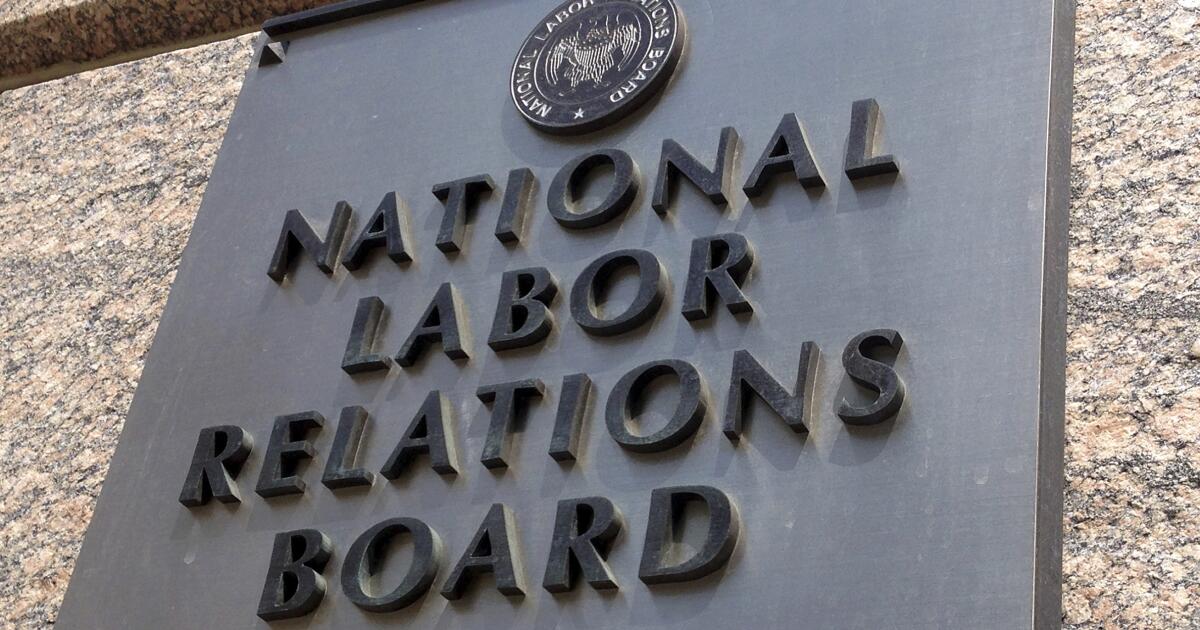NLRB sues California over law allowing state agency to enforce federal labor rights
The National Labor Relations Board has sued California to block a law that empowers a state agency to oversee some private-sector labor disputes and union elections.
Gov. Gavin Newsom signed Assembly Bill 288 into law last month in response to the Trump administration’s hampering of federal regulators. It gives the state’s Public Employment Relations Board the ability to step in and oversee union elections, charges of workplace retaliation and other issues in the event the federal labor board is unable, or declines, to decide cases.
The lawsuit, filed Wednesday in U.S. District Court for the Eastern District of California, argues the law usurps the NLRB’s authority “by attempting to regulate areas explicitly reserved for federal oversight.”
The lawsuit echos the NLRB’s challenge to a recent New York law that similarly seeks to expand the powers of its state labor board.
NLRB attorneys contend in the lawsuits that the laws create parallel regulatory systems that conflict with federal labor law.
The NLRB is tasked with safeguarding the right of private employees to unionize or organize in other ways to improve their working conditions.
Lawmakers in New York and California said they passed their bills to fill a gap, because the NLRB has been functionally paralyzed since January, when President Trump fired one of its Democratic board members. The unprecedented firing of that member, Gwynne Wilcox, left the board without the three-member quorum it needs to rule on cases.
Wilcox has challenged her firing in court, arguing that appointed board members can only be fired for “malfeasance or neglect of duty.” But her removal was upheld by the Supreme Court for now, until her case can make its way through lower courts.
Lorena Gonzalez, president of the California Federation of Labor Unions, last month called AB 288 “the most significant labor law reform in nearly a century.”
The California Public Employment Relations Board typically has authority only over public sector employees. But when the new law goes into effect on Jan. 1, workers in the private sector who are unable to get a timely response at the federal level can also petition the state board to take up their cases and enforce their rights.
The state’s labor board can choose to take on a case when the NLRB “has expressly or impliedly ceded jurisdiction,” according to language in the law. That includes when charges filed with the agency or an election certification have languished with a regional director for more than six months — or when the federal board doesn’t have a quorum of members or is otherwise hampered.
The NLRB’s paralysis has put hundreds of cases in limbo, with the agency currently lacking the ability to compel employers to bargain with their workers’ unions, or to stop unfair treatment on the job.
However, the agency’s acting general counsel — Trump appointee William Cowen — has said that only a fraction of cases require decisions from the typically five-member board and that the agency’s work has been largely unaffected, with regional offices continuing to process union elections and unfair labor practice charges.
